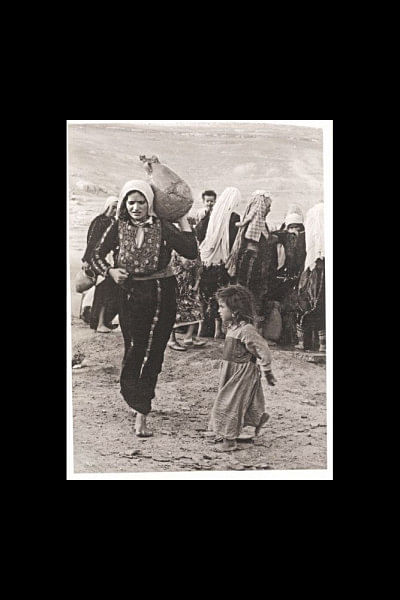Looking back at the Balfour Declaration

To the Jews the Balfour Declaration was a landmark event and to the Arabs it was a bone of contention, a black chapter in the history of the world because it led to the fulfilment of the former's aspiration for a state and deprived the later from their ancestral home, Palestine and forced them to become refugees. The Balfour Declaration dates back to November 2, 1917 when the erstwhile British Foreign Secretary, Arthur Balfour wrote a letter to Lord Walter Rothschild, a leading member of the Jewish community in Britain expressing support for a "national home for the Jewish people in Palestine". The later subsequently became known as the Balfour Declaration, which provided an impetus to the Jewish dream of creating a state which was eventually realised in 1948. During the time of the Balfour Declaration, Arabs were the majority in Palestine and the Jewish population was less than 10 percent.
The defeat of the Ottoman in Palestine paved the way to find a home for the Israelis. To the Arabs, the Balfour Declaration was the latest unjust, illegal and illegitimate colonial action.
On its Commemoration Day in London on November 2, 2017 the British government felt proud of the moment the Jews returned to their ancient homeland which has Biblical reference in favour of them. The Israelis who were scattered throughout the world as a community, could hardly think of their rise as a nation that the Balfour Declaration, through a twist of fortune, had thrust upon them. Ipso facto they were enthralled with pride and glory to have received a state created for them in that part of the world which is historically significant for people of all religions, including Christians, Muslims and Jews. The Jews think that Palestinians must embrace the truth of the Israeli state because it was their homecoming to the land of Israel.
As a matter of fact, the Balfour Declaration was made as a part of the British government's "divide and rule policy" to colonise the Middle East by discriminating against the Arab Muslims. While the British PM Theresa May and the Israeli PM Benjamin Netanyahu were marking the Balfour Declaration Centenary, there were strong protests not only in London, but also around the world clamouring for Britain to apologise for this illegal and immoral declaration. Even young boys and girls reacted against it and became adamant in fighting for their motherland:
"Could thou and I with Fate conspire,
To grasp this sorry Scheme of Things entire!,
Would not we shatter it to bits-and then
Re-mould it nearer to the Heart's Desire!"
(Rubaiyat, Omar Khayyam)
One political analyst called the Balfour Declaration the most contested document in Arab history. The Palestinians regard it as a historical injustice. Richard A Falk, an ex-US reporter was critical of it. According to Marwan Bishara, a senior political analyst of Al-Jazeera, the Balfour Declaration has become a great tragedy that still continues in Palestine. We have observed in tragedy that the hero suffers tremendously for the fault he commits unwittingly. Then what is the fault of the Arabs in Palestine? The answer is not far to seek. The fifty years from 1917 to 1967 were characterised by numerous periods of violence and hostility between Jews and Arabs. From 1919 to 1939 some 370,000 Jews moved to Palestine with the rise of Adolf Hitler in 1933. In 1937 the Peel Commission in response to the violence advocated for the partition of Palestine in the first attempt to a two-state solution. The Zionist, though not unified, supported the plan but most of the Arabs opposed it. It was a grave mistake on the part of the Palestinians. With the extermination of six million Jews during World War II, the UN voted for the partition of Palestine in 1947 and the state of Israel was established in May 1948. Israel was attacked by the local Palestinian population and later by seven Arab countries. At the end of the fighting on March 1949, Israel had increased its territory beyond the partition plan and some 700,000 Palestinian Arabs became refugees. The Israeli called it the War of Independence while the Arabs called it the catastrophe. The Six-Day War began on June 5, 1967 when Israel captured not only the Sinai Peninsula, but the Gaza Strip, the Golan Heights and also the West Bank from Jordan. As a result, 250,000 new Palestinian refugees were created. The Arab League announced for the boycott of Israel. The Balfour Declaration referred to the local Arabs as the "non-Jewish community in Palestine" whereas in the United Nations Security Council Resolution 242 they were referred to as "the refugee problem". As decades passed, Palestinian national identity strengthened in opposition to Zionism. The far-reaching implication of the Balfour Declaration reveals that the Palestinians were dispossessed of their homeland, while hundreds and thousands of them were massacred and many turned refugees. How heart-rending it is to be displaced form one's motherland and live in other countries as stateless citizens!
"There is a comfort in the strength of love; 'Twill make a thing endurable, which else Would overset the brain, or break the heart."
(A pastoral Poem, William Wordsworth)
Our PM expressed strong solidarity with the Palestinian people in their bid to establish an independent state within the occupied lands in her historic speech at the UN General Assembly.
Day by day, Israel is continuing its war crimes against the Palestinians in defiance of international law and is carrying on its expansionist policy in the Middle East. Video footages continue to bring to our eyes the ferocity of Israeli aggression and destruction. It is interesting to note that the opposition leaders of the British Parliament expressed that the British government should change its policy towards Israel and Palestine and emphasised that it is time for Britain to recognise Palestine. Since Britain is proud of her relation with Israel, it is her moral obligation to mount pressure on Israel to solve the Palestinian problem.
Finally, we come to see that the Israeli-Palestinian conflict arises from the Balfour Declaration, which all parties concerned should accept as a sine qua non for the resolution of this never-ending problem in our present-day world, to enhance regional peace and progress, by keeping aside the mistakes of the past.
Matiur Rahman is Professor of English and Vice Chancellor (In-charge), Britannia University, Comilla. Email: [email protected]





Comments